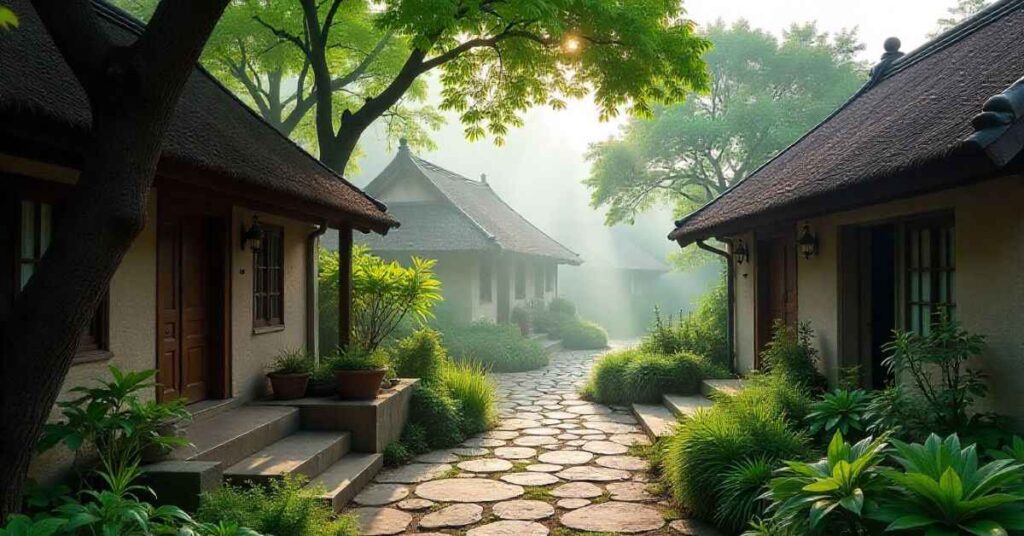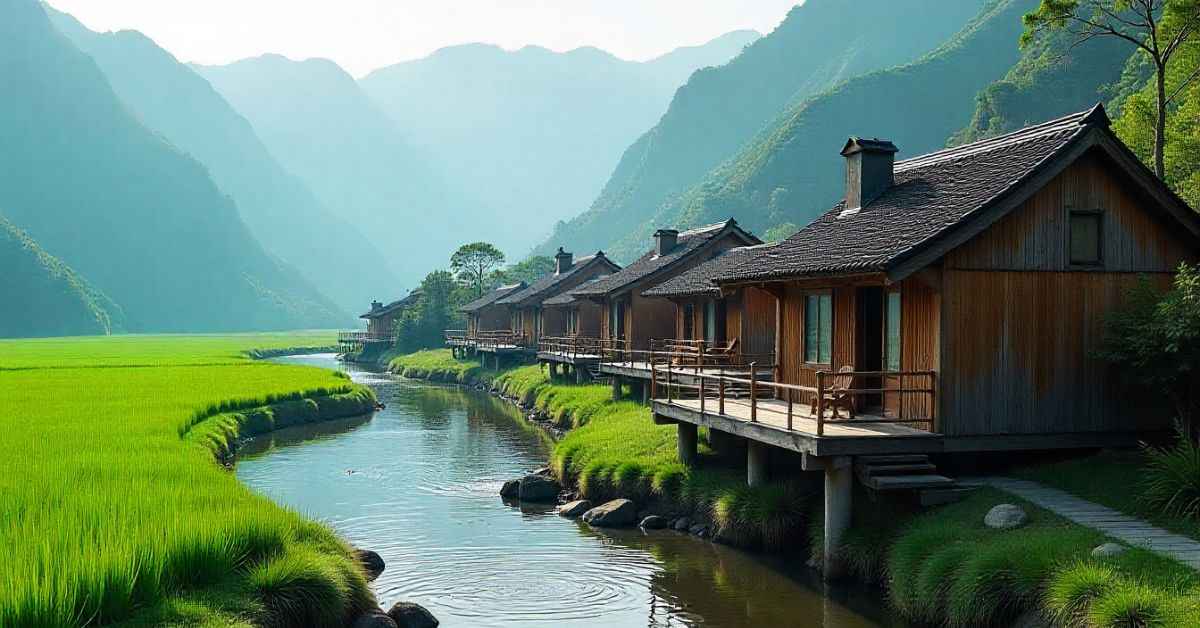Introduction
In 2025, as travelers push beyond tourist hubs and seek connections rooted in authenticity, quiet places like Anheihe stand on the edge of discovery. Not yet overrun by tour buses or selfie sticks, this mysterious enclave whispers stories of belonging, balance, and natural harmony.
But it isn’t just a remote village or postcard-perfect trail; it carries something deeper: a spirit passed through generations, carried in customs, language, and land preservation. This article dives into the sacred depth and modern relevance of Anheihe, blending cultural anthropology with useful travel guidance all to help you not just visit, but experience.
Whether you’re a cultural traveler, a heritage enthusiast, or someone simply looking to explore without exploitation, here lies your entry point.
What is Anheihe? A Cultural & Geographic Overview
Location: Nestled in the southern belt of China near river valleys and evergreen foothills, It is both a remote settlement and a cultural worldview.
The word itself carries connotations of empathy, natural harmony, and communal rhythm suggesting that the place and concept are inseparable.
| Aspect | Details |
| Elevation | ~800m above sea level |
| Known For | Nature immersion, local craft, rituals |
| Population | Less than 3,000 (2025 est.) |
| Language Dialect | Rare Southern Minority Phonetics |
| Best Time to Visit | April to October |
Hidden History and Folklore of the Region
Anheiheoral legends trace back over 700 years. Elders speak of sacred groves protected by guardians of balance and of rituals centered around the changing of seasons, not the calendar.
Throughout history, the region remained largely untouched by imperial or industrial expansion, preserving ancient customs, handwoven looms, and seasonal worship.
Key cultural epochs
- Pre-modern: clan-based living and barter economies
- Post-1940s: minor integration into provincial systems
- Present day: emerging interest by travel anthropologists, eco-tourists, and cultural preservationists
Key Insight: The community views environmental and emotional wellness as intertwined making it a wellness-driven destination in both body and soul.
How Local Culture Shapes Daily Life
Local life here is woven from timeless practices rooted in relationships. Morning greetings carry more than politeness; they reflect emotional well-being. Markets run without aggressive pricing. Meals begin with honoring ancestors.
Core traditions still alive in 2025
- Water rituals: symbolizing emotional purification
- Ancestral rock circles: each family maintains a “story-stone” symbolizing its lineage.
- Communal decision trees: elders gather under sacred trees for resolution meetings
Why it Is Emerging as a Responsible Travel Destination
Amid over tourism crises in Asia where nature gets trampled under mass selfies it offers a refreshing contrast: slower pace, respectful access, and deeply eco-conscious tourism.
Why It Appeals to 2025 Travelers:
- Certified “Low-Impact Visitor Region” under China’s new green corridor initiative
- Hosts only 100 visitors/month under local stewardship quotas.
- Mandatory eco-guide orientation for visitors before hiking or ritual participation
| Responsible Travel Element | Implementation |
| Waste-free lodging | Bamboo + clay inns |
| Tourist caps | Monthly rotation |
| Cultural etiquette flyers | Handed to all guests |
| Local economy benefit | 88% revenue stays within community |
Travelers say it feels like attending, not intruding on part of what makes Anheihe unforgettable.
Top Things to Do in Anheihe
While not a checklist destination, It offers enough to experience if you’re open to immersive travel.
| Activity | Description |
| Forest meditation trail | Slow walk with storytelling sessions led by elders |
| Herbal dye workshop | Learn ancient textile dipping with local plants |
| Night ceremonies | Dance and chanting under the full moon |
| River cleansing | Participate in symbolic healing with community blessing |
| Cave drums | Echo-music designed to “feel the ancestors” (2025 traveler-favorite) |
Note: These are not “attractions” they are invitations. Booking is done in cooperation with the village guide network.
Places to Eat, Sleep & Reconnect with Nature
Accommodations in Anheihe are functional, warm, and beautifully humble.
Expect earth-toned lodges, traditional clay-wall architecture, and small herb gardens. Electricity often turns off by midnight.
Where to Stay:
- “Earth Sister Homestay” Plant”-based meals, rooftop herbal breathing sessions
- “Moon ”Lodge” Sacred symbols carved into every door
- EcoStone Circle Camp-Sleep by fire pits, no devices allowed.
Food to Try:
- Shujian leaves in wild-root broth
- Smoked yam wraps in elderberry sauce
- Wildcrafted tea from under-forest vines
Everything is seasonal, vegan, and tied to lunar preparation rituals.
Anheihe’s Environmental Practices
Unlike commercial tourist zones, It lives with nature, not beside it.
No plastic. No off-road trails. There will be no removal of trees.
Environmental Highlights 2025:
- Natural paths created by generations of foot travel
- Companion planting for food forest maintenance
- Cloud water harvesting instead of electric pumps
- 1 tree is planted per three overnight guests.
This is not policy, it’s ancestry.
Best Ways to Reach Anheihe and Travel Tips
Getting to Anheihe is intentionally a slow journey. It’s more experience than route.
Steps
- Fly to Guilin or Kunming
- Take the eco-rail line to Nanshi Valley Station.
- Use the community-run minivan environmental fleet or hike 3 miles to reach Nanshi Valley Station.
Tips
- Carry biodegradable gear
- Signal drops after 5 p.m.
- Learning basic local gestures is a memory here.
- Always ask for permission before photographing rituals or crafts..
How Anheihe Compares to Other Destinations
| Category | Anheihe | Typical Wellness Spot |
| Commercialization | Low | Moderate to high |
| Cultural immersion | Deep, ancestral | Often curated for tourists |
| Wellness philosophy | Emotional & communal | Yoga + spa-based |
| Accessibility | Moderate | Easy |
| Environmental policy | Community-run | Business-led |
Even compared to hotspots like Lijiang or Mount Emei, It offers something rare in 2025: untouched presence.
Preserving Anheihe’s Spirit in a Fast-Changing World
As the world quickens, places like Anheihe beg a deeper question: can culture guide progress, not follow it?
Preservation efforts are in motion but it’s your actions while visiting that matter most:
- Support local economies
- Learn; don’t perform.
- Share authentically not through filters but facts
- Recommend it without revealing every detail.
The name “Anheihe” itself spoken softly is meant to reverberate, not echo. Let the trip inspire change, not a travel checklist.
FAQs
Is Anheihe a real town or a cultural concept?
It’s both a physical place and a cultural lens for living in balance.
Is it easy to visit Anheihe as a tourist?
Yes, but only in small groups with community-approved entry.
Can you stay in Anheihe overnight?
Yes, homestays and eco-lodges are available with advance coordination.
What makes it unique compared to similar destinations?
It centers both environment and human emotion, not just beauty trends.
Can I go without participating in rituals?
Yes, though respectful observation is encouraged it deepens the experience.
Conclusion
Anheihe is more than a remote destination; it’s a living philosophy embodied in place, people, and practice. In a time when travel often threatens the very environments and cultures it seeks to explore, Anheihe stands as a rare model of balance. It offers a blueprint for responsible tourism rooted in ancestral wisdom, ecological stewardship, and authentic human connection.
Whether you’re drawn by its spiritual traditions, its earth-rooted sustainability, or simply its quiet resistance to commercial tourism, Anheihe invites you not to consume a location but to participate gently, consciously, and respectfully. The village’s slow rhythms, sacred customs, and nature-first mindset offer travelers a powerful reframing: that travel, at its best, can heal rather than harm.
Visiting Anheihe is both a journey inward and outward. For those who seek transformation over transaction, this hidden cultural sanctuary provides not just memories but meaning.


